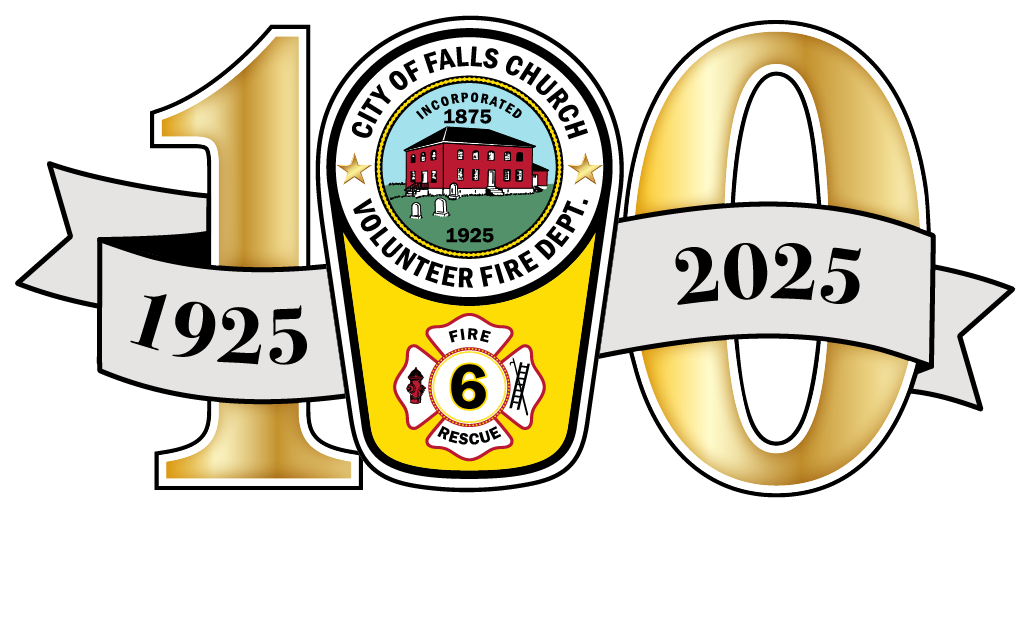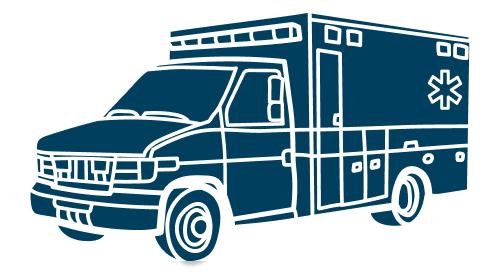When emergencies happen, most don’t occur in public. Instead, they happen right where we feel safest: at home. In fact, the American Heart Association reports that over 70% of cardiac arrests happen in private residences. That means the first person on the scene is usually a loved one, not a professional EMS responder. The good news is that a little preparation for any type of medical emergency at home can go a long way in saving lives.
September is National Preparedness Month, making now the perfect time for Falls Church and Arlington families to take stock of how ready they are for emergencies at home. Understanding the most common medical emergencies, and how to respond to them, can make all the difference when every second counts.
What kind of emergencies should I prepare for?
Some of the most common emergencies at home include:
- Cardiac events or heart attack
Cardiac arrest happens when the heart suddenly stops beating. It often strikes without warning and requires immediate CPR and an AED if available. A heart attack, while related, can show warning signs like chest pain, shortness of breath, or nausea. Both are life-threatening.
- Choking incidents
Choking can block the airway, preventing oxygen from reaching the lungs. This is especially common in children or during meals. Learning the Heimlich maneuver (abdominal thrusts) can help you act fast before the situation becomes fatal.
- Stroke
Stroke symptoms often come on suddenly—look for facial drooping, arm weakness, and slurred speech (use the FAST acronym: Face, Arms, Speech, Time). Time is critical. Call 911 immediately if these signs appear.
- Allergic reactions (Anaphylaxis)
Severe allergic reactions can cause swelling, difficulty breathing, or a sudden drop in blood pressure. If someone in your home has known allergies, having an epinephrine auto-injector (like an EpiPen) and knowing how to use it can be life-saving.
- Falls or traumatic injuries
Especially common among older adults, falls can lead to broken bones, head injuries, or internal bleeding. Clear walkways, good lighting, and basic first aid knowledge can help you manage injuries while awaiting EMS.
Each of these emergencies requires quick thinking and immediate action. Being prepared doesn’t mean being a medical expert—it means knowing how to recognize the signs and take the first step to help until trained responders arrive.
How can my family prepare for emergencies?
- Keep updated medical information/history within reach.
Create a printed list of each household members current medications, allergies, chronic conditions and emergency contacts. Make sure every person in your home is aware of their location and can access them in case of emergency.
- Learn basic CPR and first aid.
Knowing bystander CPR can double or triple a person’s chance of survival during cardiac arrest. There are many ways to learn both in person and in online courses through the Falls Church and Arlington areas.
- Have a first aid kit stocked and ready.
Make sure your kit includes bandages, gauze, gloves, and any specific items like an epi-pen, depending on your families needs (such as an epinephrine auto-injector). Check your kit every 6 months and restock as needed.
- Teach your children how to call 911
Practice what to say in an emergency: your address, phone number, and a clear explanation of what’s happening. Kids should know to stay calm, speak clearly, and stay on the line.
Is my home easy for first responders to find?
One of the most common delays EMS crews face is locating the correct house during an emergency. Consider the following:
- Can your house number be seen/read easily from the street, during both the day and night?
- Are the numbers large, reflective, and contrasting with your home’s exterior?
- Is the path to your doorway clear, safe, and well lit?
If the answer is no, updating your house numbers or adding lighting is a quick, inexpensive improvement that saves precious minutes in an emergency, and helps the EMS team locate your home.
What about family members with special needs?
If you live with seniors, young children, or anyone with chronic conditions, there are a few extra steps you can take to make sure you’re prepared:
- Remove tripping hazards throughout the home like cords or loose rugs
- Store important documents like insurance cards or medical directives in an easy-to-access location.
- Plan ahead for medical devices that require electricity – keep backup batteries or know how to use them during an outage.
Making Falls Church a Safer Community, One Household at a Time
Being prepared doesn’t mean overhauling your entire home. It starts with small actions that can have a life-saving impact such as updating your medication list, checking your house numbers, or registering for a CPR class.
At the Falls Church Volunteer Fire Department, we’re proud to serve our neighbors in Falls Church, Arlington, and surrounding Northern Virginia communities. When families take steps to prepare, it helps our team deliver faster, more effective care the moment we arrive.
Support our mission to ensure we’re equipped to respond with the training, tools, and resources needed, day or night. Make a donation today.
Want to get involved and help protect your community? Join FCVFD

